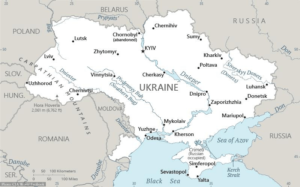A Haunting Exploration of the Vietnam War

The Complex Tapestry of War
Denis Johnson’s “Tree of Smoke” is a sprawling, haunting exploration of the Vietnam War, delving into the moral complexities and psychological toll of conflict. Set against the backdrop of the 1960s, the narrative follows a diverse cast of characters whose lives become intertwined with the tumultuous events unfolding in Southeast Asia.
A Descent into Darkness
At the heart of the novel is Skip Sands, a young CIA operative who becomes deeply embroiled in the shadowy world of espionage and counterintelligence. Skip’s journey is one of disillusionment and moral compromise as he navigates the murky waters of the intelligence community. His experiences highlight the blurred lines between right and wrong, the erosion of personal integrity, and the devastating impact of war on the human psyche.
A Gallery of Unforgettable Characters
Alongside Skip, we encounter a gallery of unforgettable characters: James Houston, a disillusioned infantryman grappling with the horrors of combat; Bill Houston, James’s brother, a troubled soul searching for meaning in a chaotic world; and Kathy Jones, a Canadian aid worker who becomes a witness to the suffering inflicted by the war. These characters, each with their own unique struggles and vulnerabilities, serve as microcosms of the larger human tragedy unfolding in Vietnam.
A Lyrical and Unflinching Narrative
Johnson’s prose is both lyrical and unflinching, capturing the beauty and brutality of the Vietnamese landscape with equal measure. His writing style is characterized by a fragmented, nonlinear narrative that mirrors the fractured nature of memory and the chaotic reality of war. The novel is filled with moments of startling beauty and profound despair, as Johnson explores themes of love, loss, redemption, and the enduring power of the human spirit.
A Testament to the Power of Literature
“Tree of Smoke” is a challenging and rewarding read, a novel that demands the reader’s full attention and emotional engagement. It is a testament to the enduring power of literature to illuminate the darkness of human history and to inspire empathy and understanding. By delving into the personal stories of those caught up in the Vietnam War, Johnson offers a powerful critique of the destructive nature of conflict and the human cost of political ambition.










